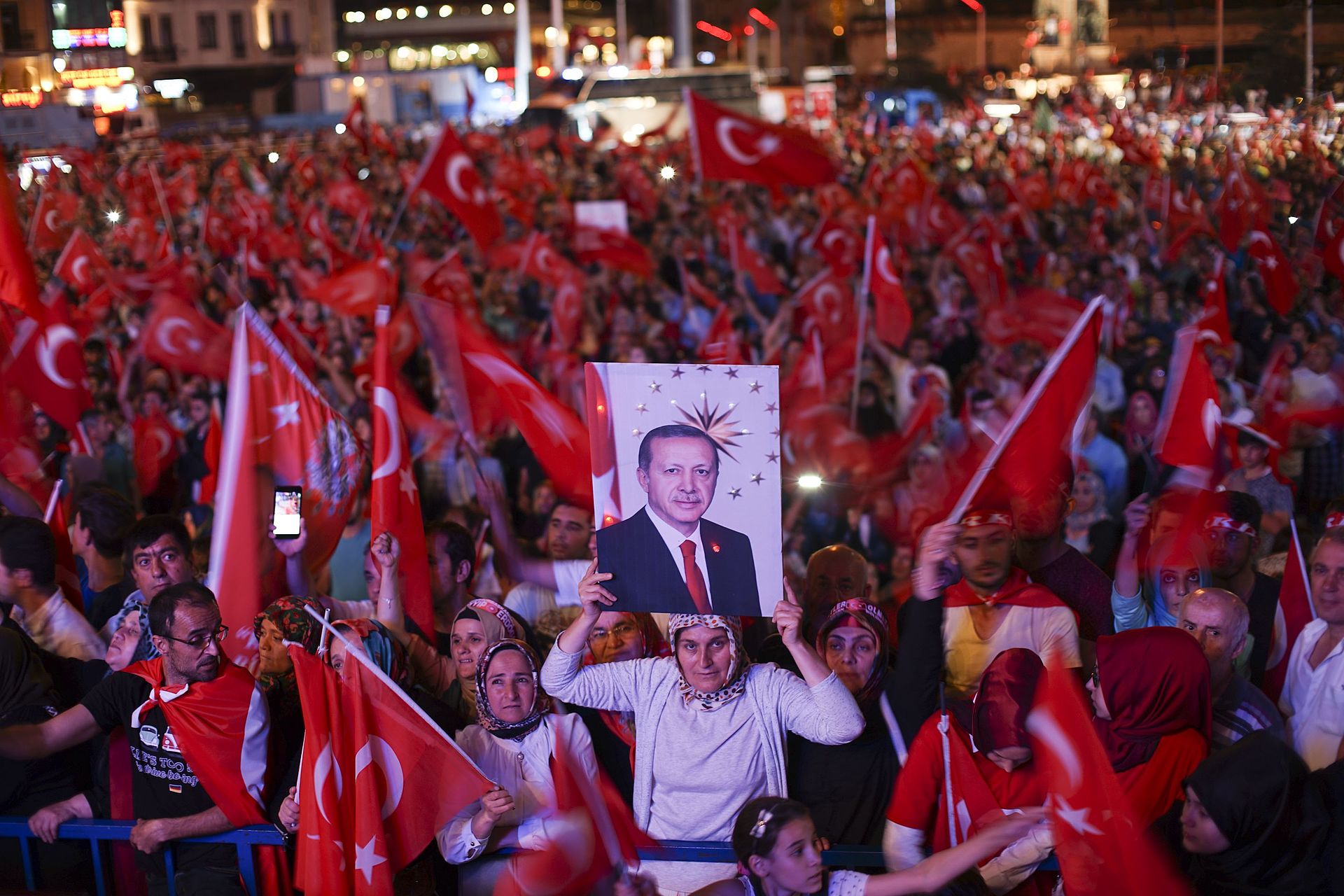Amidst escalating political tensions between Germany and Turkey, three of Germany’s Turkish-dominated Islamic associations have made clear their perspective on the causes of the current diplomatic spat.
Joint press release
On the anniversary of last year’s military coup attempt in Turkey, the DİTİB, IGMG, and ATİB organisations issued a joint press release, calling for a “about-face in German-Turkish relations”.1
In this document, the three signing associations bemoan that “Europe’s highly reserved reaction” to the attempted putsch had “deeply unsettled the people of Turkish descent. It is more necessary than ever to lift German-Turkish relations to the usual, cordial level.”
“Lack of solidarity”
The core message of the statement centres on Europe’s failure to “recognise the great trauma of July 15 [2016]”. DİTİB, IGMG, and ATİB criticise what to them appears to be “widespread disappointment at the failure of the coup”. They castigate the “lack of solidarity with the Turkish people, considering 249 dead and thousands injured”.
The three organisations greeted the conciliatory signals made by Germany’s Vice Chancellor and Sigmar Gabriel, who had in the past repeatedly stressed the need to be supportive of Turkish democracy against the coup plotters.
The Gülenist foe
Overall, the statement paints a picture of Turkey as beleaguered by internal and external enemies, ranging from a PKK terror campaign to instable neighbouring states. It is against this backdrop that DİTİB, IGMG, and ATİB see the coup attempt as having been committed by “a sect-like parallel state, which has infiltrated nearly the entire state apparatus through illegitimate networks and unlawful means” – i.e. the Gülenists.
Implied in this argument is always the suspicion that Germany is either too soft on Gülenists or that it even actively endorses the movement. In fact, a Turkish tabloid recently claimed that the Gülen organization was “Germany’s long arm”.2
Bridging old divides between DİTİB, IGMG, and ATİB
Yet it is not only the statement itself that is of interest but also the entente of the three organisations responsible for its drafting. DİTİB, IGMG, and ATİB joining hands represents the convergence of previously disparate groups under the shared commitment to a strong Turkey led by an increasingly authoritarian President.
DİTİB, the subsidiary of the Turkish Presidency of Religious Affairs (Diyanet) and thus an indirect organ of the Turkish statem has always pursued a line broadly sympathetic to current Turkish governments. Recently it has come under increasingly tight control of the AKP administration.
Islamists and nationalists
IGMG – in its full name “Islamic Community Millî Görüş” – is an offshoot of Necmettin Erbakan’s Islamist movement. As such, it did not use to be on good terms with DİTİB, as long as the old Kemalist elites were in charge of the organisation. This changed after Recep Tayyip Erdoğan’s arrival in power: Erdoğan’s own AK Party is a spin-off of Erbakan’s movement.
Finally, ATİB – the “Union of Turkish-Islamic Cultural Associations in Europe” – represents a stridently nationalistic version of Turkish Islam. Whilst some of the Union’s funding is derived from the Turkish state and Diyanet, it also has long-standing ties with hardline Turkish nationalism as incarnated by the “Grey Wolves.”
The rise of “Islamokemalism”
As such, ATİB’s co-signing of the press release with DİTİB and IGMG mirrors the rallying of Turkey’s far-right MHP party to Erdoğan’s persona and his authoritarian leadership style. In this respect, the agenda of the three associations is not as much Islamic as it is concerned with projecting a strikingly nationalistic picture of Turkish greatness.
Şahin Alpay, one of Turkey’s leading intellectuals arrested since the coup attempt, has referred to this marriage of authoritarian nationalism with Islamist references as “Islamokemalism”.3 This term perhaps better than any other captures current developments in Turkey.






